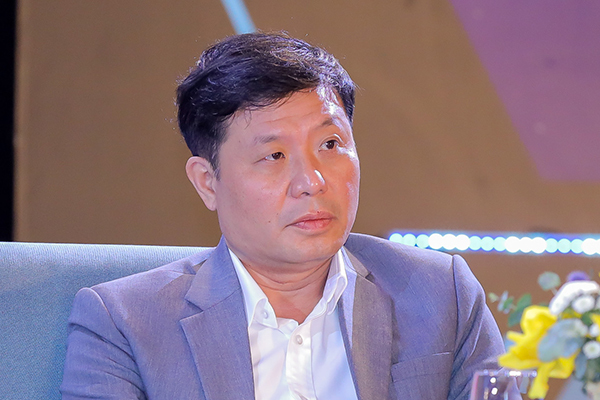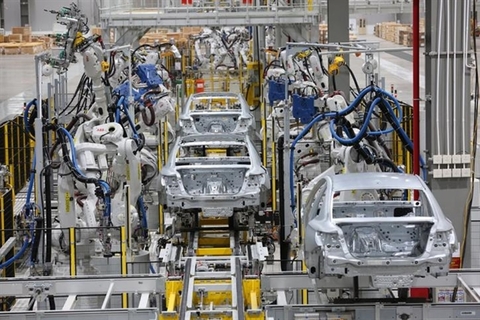 |
|
Dr. Xuedong David Huang - Chief Technology Officer of Microsoft. |
At a Science & Life seminar within the framework of VinFuture science week, scientists from all over the world agreed with the view that artificial intelligence (AI) has made great strides.
Dr. Xuedong David Huang, Chief Technology Officer of Microsoft, said in the past five years, much has been learned about AI use. Dr Huang is a leading researcher in speech recognition, language processing and machine translation.
AI technology is increasingly showing its usefulness in many fields, from analytical computing models to helping users make decisions.
“In the past, most people were limited in their ability to communicate in a few languages. However, with the help of AI, we can now use one language and have computers translate it into hundreds of different languages,” said Huang.
Dr. Bui Hai Hung of the VinAI Research Institute said that in the past 5-10 years, AI has developed into many fields with many different applications. For example, robot development has made a lot of progress.
 |
|
Dr. Bui Hai Hung (VinAI Research Institute). |
The role of AI can be seen even more clearly with the advent of virtual assistants on mobile devices and in smart homes. AI technology has also contributed to the manufacturing of self-driving cars.
Professor Jennifer Tour Chayes from the University of California Berkeley said that AI makes a significant contribution to early diagnosis in the field of medicine. Thanks to the help of AI in image processing and decoding, many people have received early warnings and treatment for cancer.
The role of AI is clearly visible in the treatment and diagnosis of pulmonary tuberculosis. With this disease, doctors often have to spend time reading X-ray films. The intensity of continuous work for a long time can affect the accuracy of diagnostic results. AI technology solves this issue as it becomes a factor to support doctors in decision-making.
Vietnam and the opportunity to close the gap in AI technology
Dr. Bui Hai Hung said Vietnam is reaching maturity in terms of both AI research needs as well as market needs. Currently, Vietnam's VinAI Research is one of the leading labs in terms of the number of published publications and seminars attended.
Hung said that it is time for Vietnam to pay more attention to training and education to build technology talent. This needs to be done not only in the public education sector but also in the private sector and businesses.
Vietnam has a bright future in the development of AI technology. Human resources are seen as the outstanding advantage. To turn the potential into reality, Vietnamese people must have vision and hopes.
 |
|
Prof. Vu Ha Van (Yale University, USA). |
Prof. Vu Ha Van (Yale University, USA), said that Vietnam has many favorable conditions to develop AI technology. “In Vietnam, it is easier to collect and label data than in other countries. The mathematical ability of Vietnamese will also help Vietnam easily develop human resources specializing in AI,” he said.
There is still a gap in technology fields between Vietnam and the rest of the world. He said that it is necessary to raise people's awareness from a scientific perspective, and then expand investment in artificial intelligence.
To make full use of the potential of the Vietnamese people in the field of AI, the State needs to have a policy to support young scientists. The formation of large research centers can also help to attract many international scientists to Vietnam.
Trong Dat

Vietnamese enterprises have the conditions to develop world-class AI
Artificial Intelligence (AI) technology has advanced at lightning speed over the past decade and has become the hot topic of many domestic and international seminars.

What should we expect in the world of technology in 2022?
'Great things often come from the simplest things'. This might be the best description for the tech world in 2022.